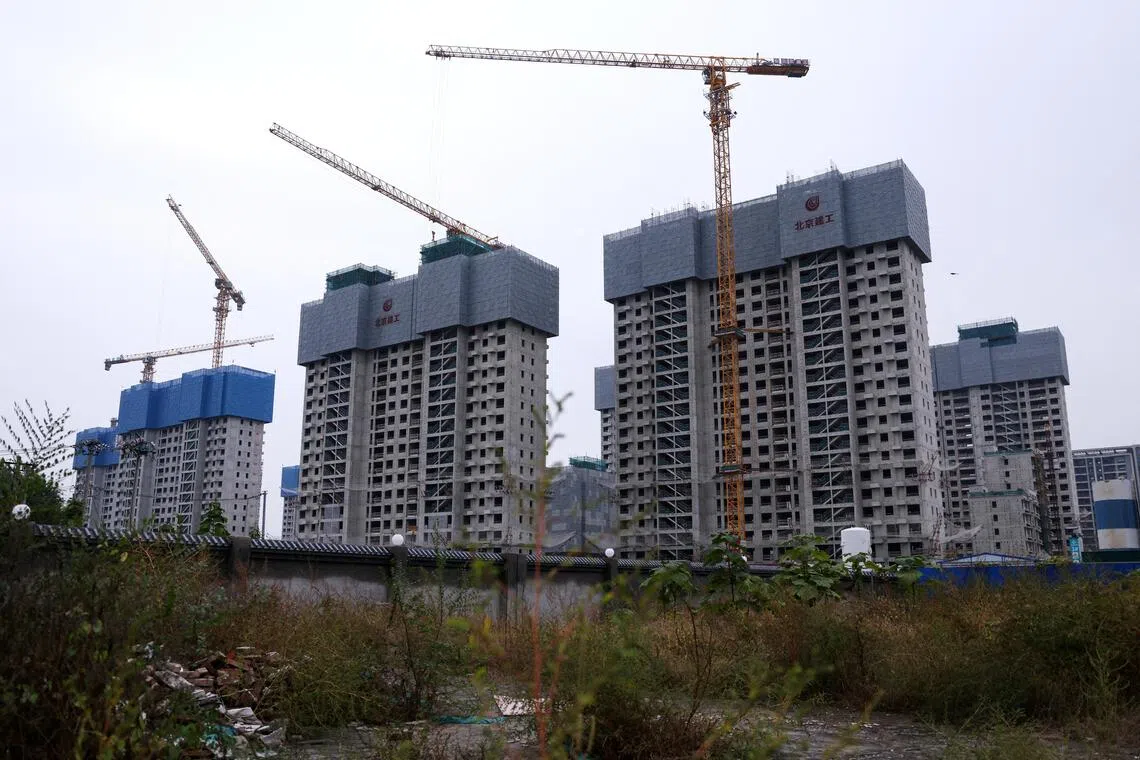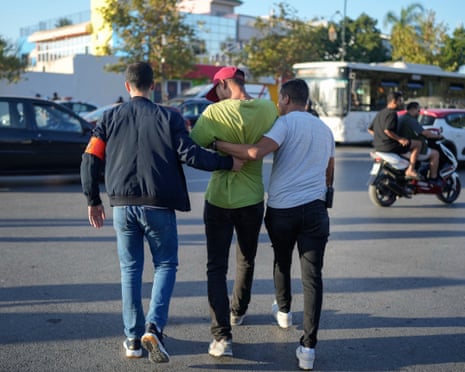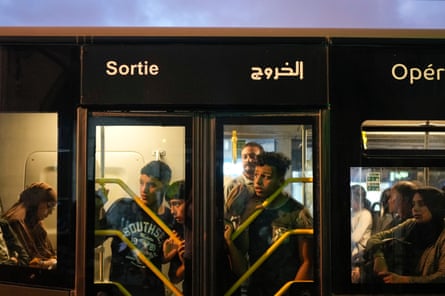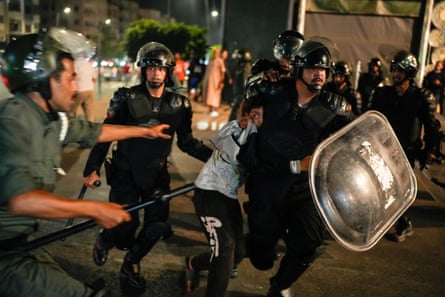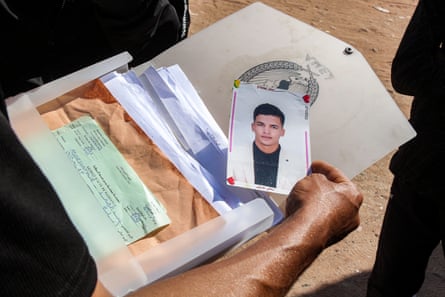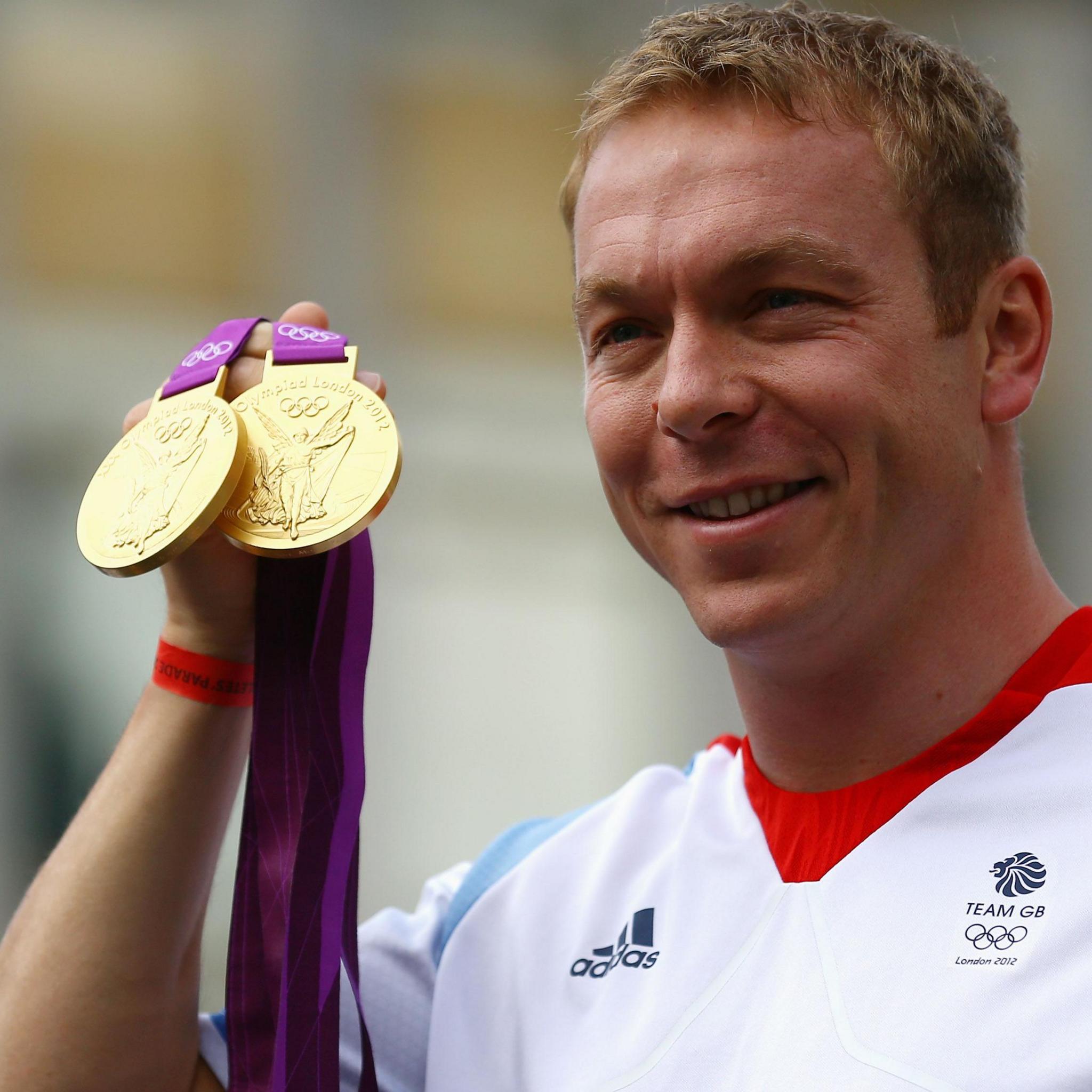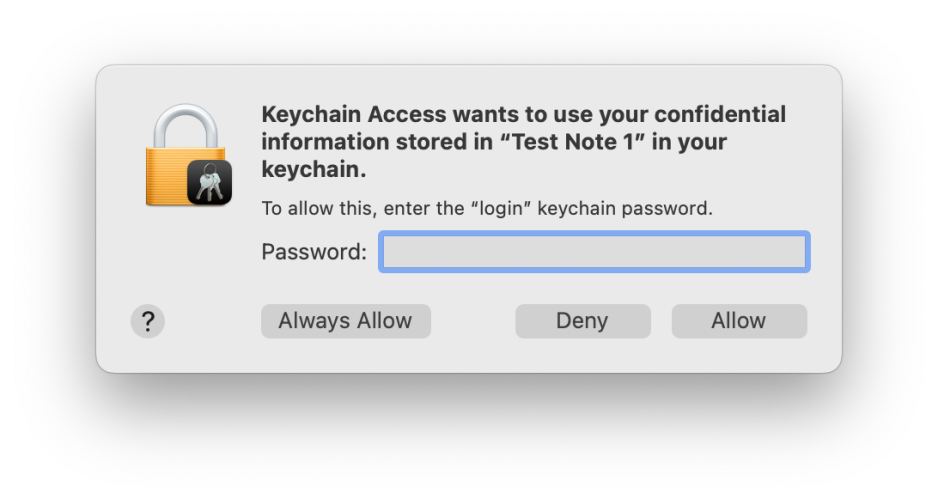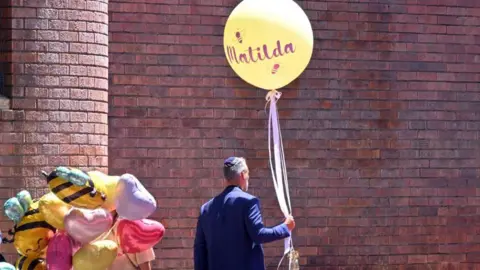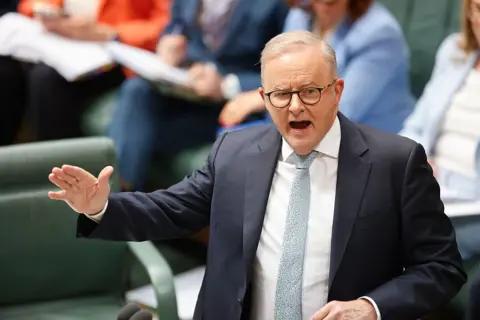在最近的 iOS 26.2 更新之中,有一个相当细节的更新,用户会发现自己「睡眠评分」获得的评价和以前不太一样了:
以往只要获得 70 分就能收获「高」评价,现在需要达到 80 分;而最高的等级「极好」不仅改名为「非常高」,也需要用户睡到 95 分以上的高分。
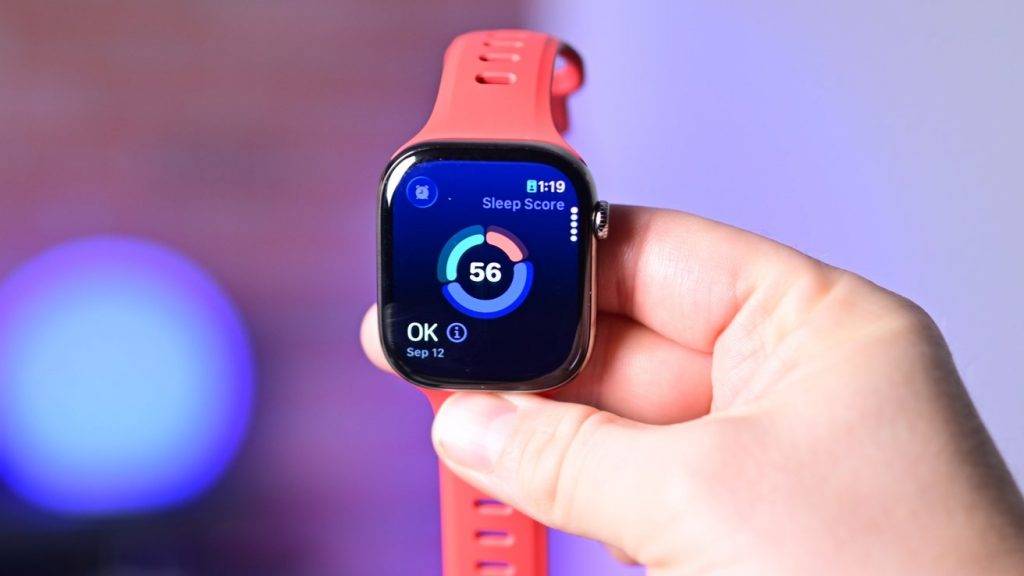
带着这些问题,和更多的想法,爱范儿与苹果健康团队的研究科学家,主攻睡眠医学方面的 Matt Bianchi 博士进行了一次专访。
在 2018 年加入苹果之前,Bianchi 博士在麻省总医院、哈佛医学院都工作过,研究失眠、睡眠呼吸暂停等等睡眠议题,这些都是苹果正在关注的健康领域。
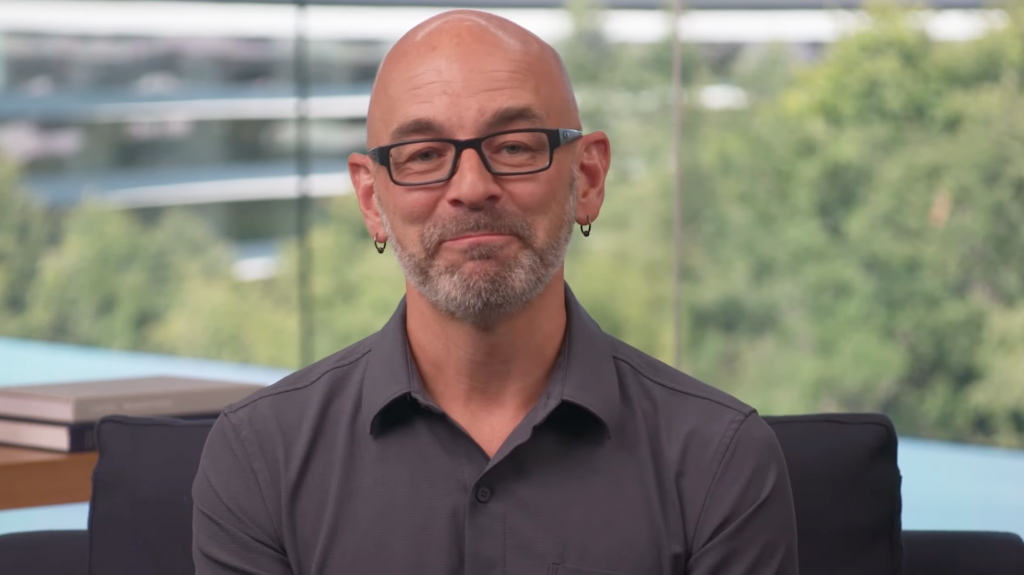
在这次访谈开始前,其实我内心一直有个疑问:昨晚如果我拿下了「100 分」的睡眠评分,是不是就意味着我睡得特别好?
Bianchi 博士告诉我,并不。
睡眠这件事,有一个标准
在运动健康领域,苹果很喜欢「说人话」,像生命体征、睡眠呼吸暂停这些指标,其实都是苹果将体温、心率、血氧、呼吸等抽象的监测数据,转换成用户一眼能懂的图表。
Bianchi 告诉爱范儿,对于睡眠评分以及更多睡眠功能时,苹果遵循三个基本原则:
透明、客观、可理解。
Transparent, obejctive, easy to understand.
但这些指标主要是以范围和趋势的形式呈现,爱范儿问 Bianchi 博士,为什么要在睡眠这个行为上引入确定的、量化的打分方式,他的答案很简单:因为睡眠真的太重要了。
睡眠对我们的身心健康至关重要,我们希望能够有一个方式可以很容易地让用户可以看到自己在前一晚的睡眠状况如何,也希望能通过这种方式鼓励用户去行动起来,提升自己的睡眠品质。
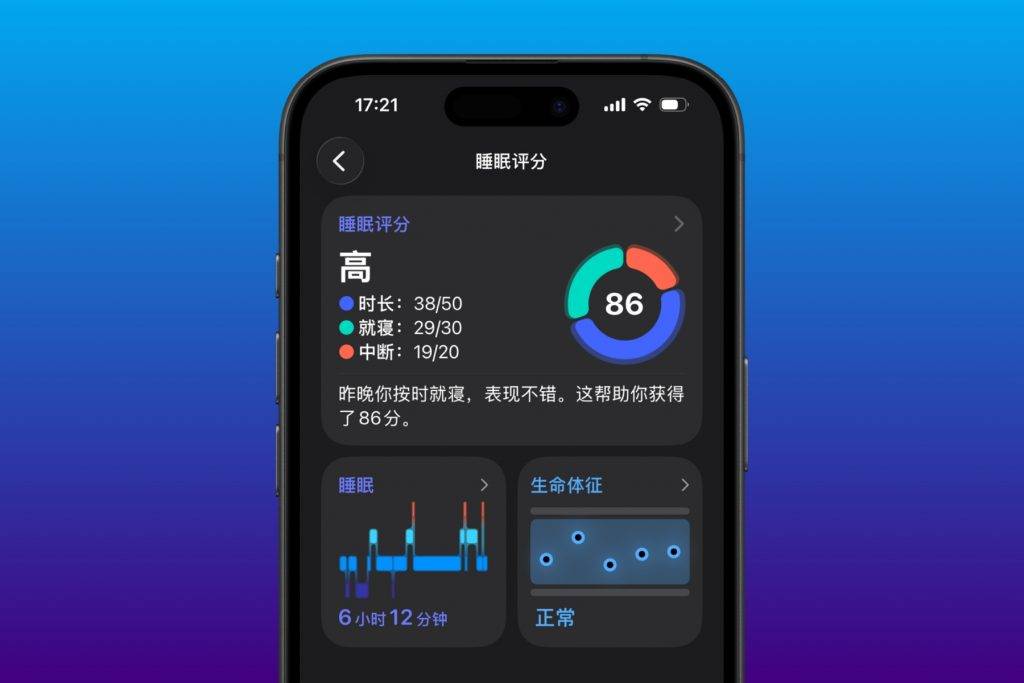
在访谈中,Bianchi 博士多次强调,苹果的睡眠评分功能,都是基于美国睡眠医学会、世界睡眠基金会等多种组织的公开指引,结合苹果自己的心脏和运动健康医学研究,研发出一套算法。
苹果的睡眠评分系统主要以三个指标构成:
- 持续时间,占 50 分
- 就寝时间,占 30 分
- 中断情况,占 20 分
这些指标并非单纯是苹果自己的研究结果,也是严格参考学界给出的公开指引和指南。Bianchi 博士称,希望这些透明、标准化的指标,能够为这个功能带来进一步的影响力。
美国心脏学会在今年的一份声明中,也指出了多维睡眠健康对心脏代谢功能的重要性,其中就提到了八大维度:睡眠时长、连续性、入睡时间、规律性、睡眠相关的日间功能、睡眠结构以及无睡眠障碍。
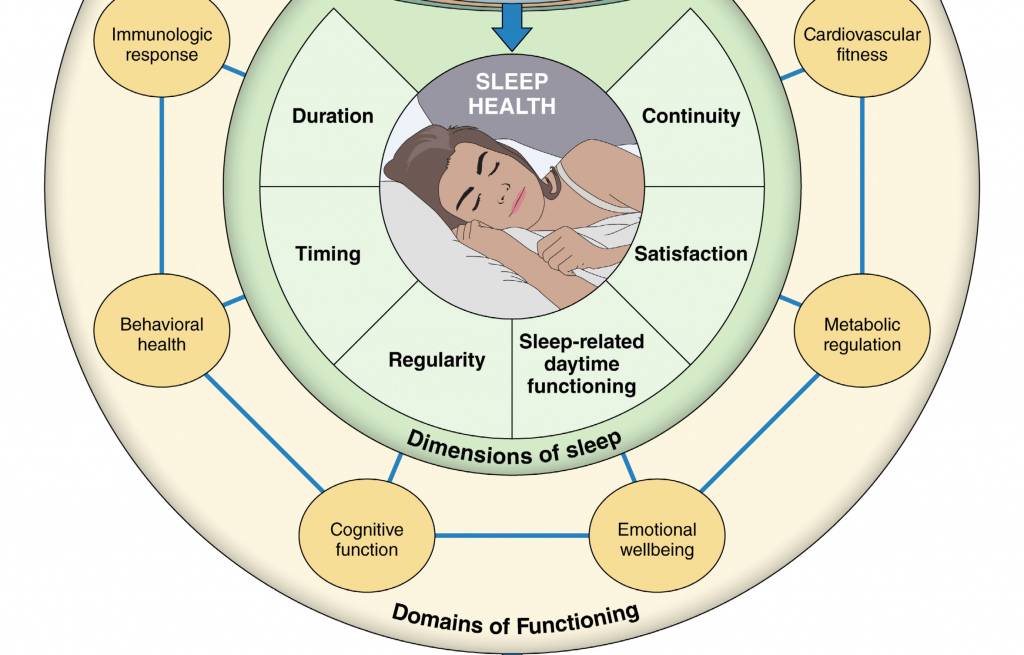
在使用睡眠评分的过程中,我发现自己确实可以根据睡眠评分的几条细分和反馈,去积极调整自己的作息习惯,比以往的「睡眠阶段」图表,更能发挥主观能动性,形成更好的睡眠习惯。
不过这也带来了一种错位,似乎以前我们关注的「深度睡眠时长」,和这个全新的睡眠评分并没有明显的关系,包括我在内不少用户发现,即使深度睡眠时间不长,也能有很高的分数,难道我们以前关注的这些数据意义不大?
对此,Bianchi 博士解释道,在「持续时间」这一维度中,评分权重本身就有明确分配——其中 40 分用于评估整体睡眠时长,5 分对应快速眼动睡眠的持续时间,另有 5 分分配给深度睡眠周期。
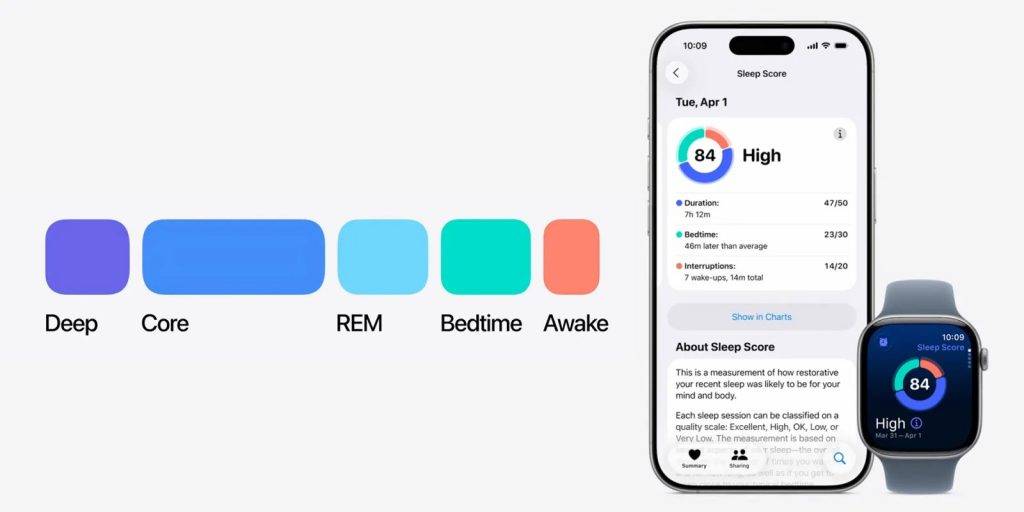
这样的分配,其实也体现了苹果对优秀睡眠的一种取向:时长为先,深度其次,能掌握的才最值得鼓励。
睡眠习惯 > 睡眠数据
关于睡眠评分,最大的争议往往来自于「完美睡眠主义」——即把改善睡眠的指标当成了必须考满分的 KPI,反而引发焦虑而睡不好。
对此,在 iOS 26.2 版本中,苹果做出了一个看似微小却意味深长的调整:
将评分的最高评级名称从「极好(Excellent)」调整为「非常高(Very High)」 。
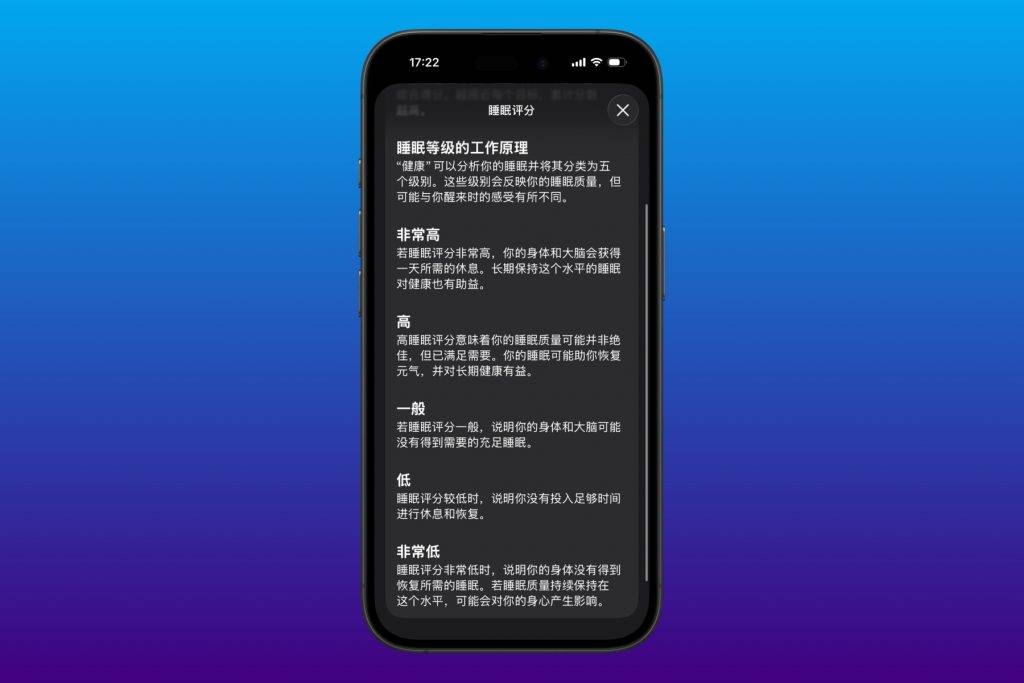
在访谈的过程,Bianchi 其实也反复强调了睡眠评分的意义:
这个评分并不反映用户的主观感觉,它不是在反映「睡得好不好」这件事,它只是根据科学标准和我们的指引,所呈现的一个客观分数的总结。
这意味着,分数的涨跌不一定总是与你的主观感受同步。
苹果希望通过这种透明的方式,让用户直观地看到:在医学和科学的视角下,究竟什么样的睡眠才被定义为「健康」。
这一改动旨在消除「必须做到优秀」的心理暗示,使评价体系更加客观。
Bianchi 博士坦言,虽然底层的数值算法和科学指引没有变,但这一调整是基于用户反馈,为了让体验更贴合用户心理,避免盲目追求「高分」带来的压力 。
对于锻炼身体,苹果设计了「锻炼圆环」这种激励机制,完成得好会有奖励,还鼓励用户多和其他人竞争,获得更高的分数,完成圆环。

但睡眠分数很不一样,健康共享中没有这个指标,避免和其他用户对比,而不管高分和低分都不会有更多反馈。
一言蔽之:睡眠评分,和睡得好不好没有关系,更关心的是你如何能睡好,比起「指标」更像「路标」。
毕竟睡眠评分只是一个晚上的数据,但用户根据评分去改变自己的行为,形成良好的睡眠习惯,才是终身受益的事情。
睡眠评分中有 70 的分数都是围绕「睡眠行为」进行评判,而不是「睡眠质量」——只要用户按时作息、睡够时间,至少能获得一个「一般」的评价,而只要睡得安稳,高分也并不困难。
这种标准,是苹果依据大量公开的睡眠医学准则制定的,具有全球范围内的基本普适性。
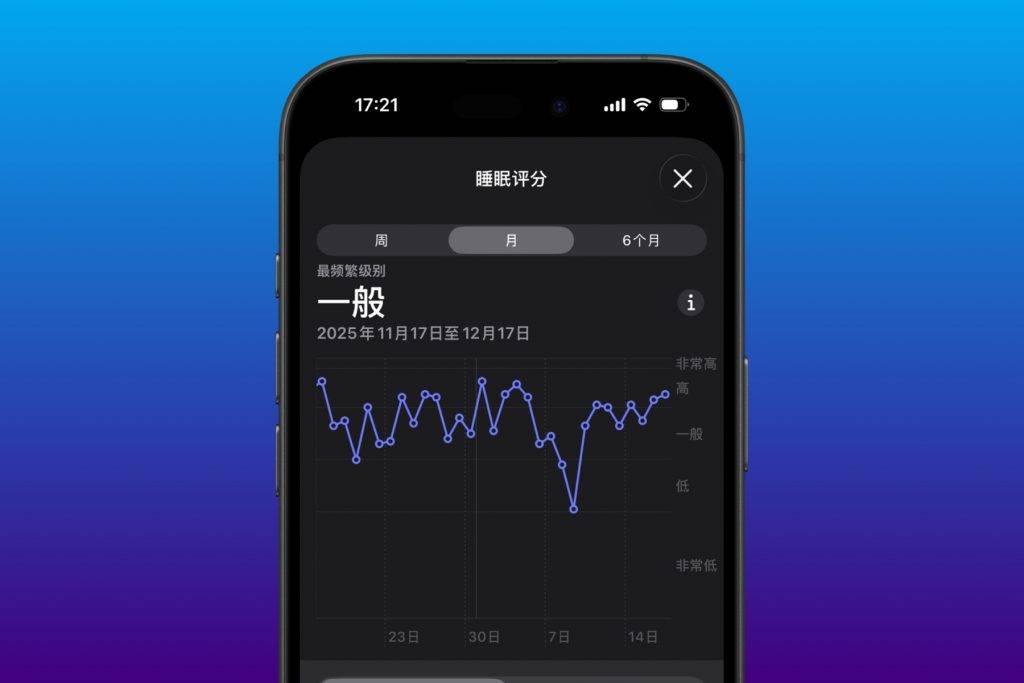
Bianchi 博士也表示,对于赋分方式和评级,苹果也在倾听用户意见不断调整,iOS 26.2 整体将评级对应的分数提高,就是基于用户洞察的结果。
我问 Bianchi 博士,不同文化背景下,睡眠习惯也有所差异,比如中国人传统健康观念的「早睡早起」,但好像不会体现在睡眠评分中。
Bianchi 博士则表示:
其实美国传统医学很强调「早睡早起」,但在我们参照的科学性指引中非常强调所谓的「一致性(consistency)」。当然,如果用户是规律性早睡早起,其实也会反映在分数之中。
Bianchi 博士还提到了一个很小的例子:小睡。
在很多文化中,小睡特别是午睡是很重要的睡眠形式,其实苹果也考虑到了这点,小睡的时间也会计算到睡眠评分的「时长」之中。
这种「睡了就有得分」的机制,和其他睡眠追踪应用还不一样。一位用 AutoSleep 的同事表示,这个应用不仅很复杂,而且走的是一种「睡眠负债」的路线——只要睡不够,它就会让你第二天睡更多的时间来补偿,并且还会有一堆警告。
但苹果睡眠评分很简单,午睡不是「还债」而是「拿分」,睡得少也只是得分低,甚至得分也只是「一般」,同事觉得还不错。
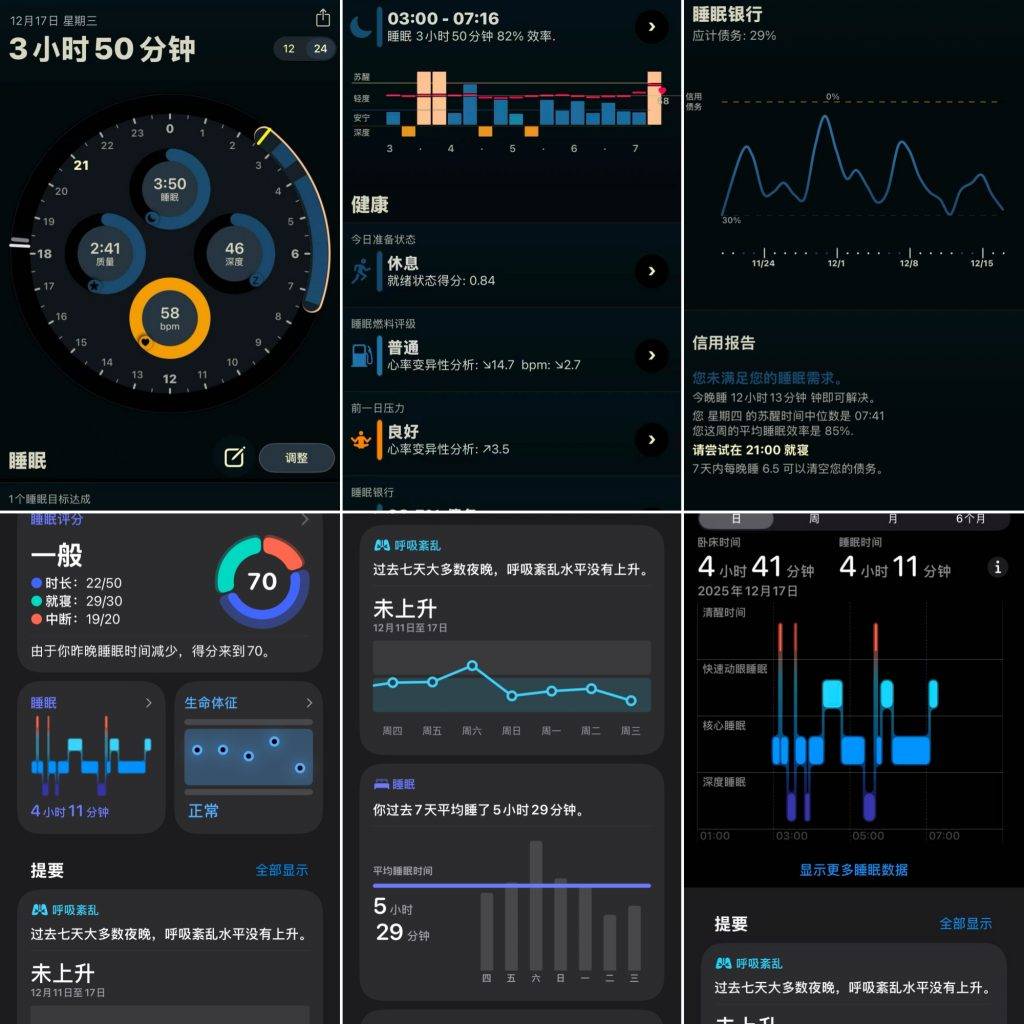
▲ 同一个晚上,上面是 AutoSleep 的结果,下面是苹果健康
自初代 Apple Watch 到现在,苹果已经在健康医学的领域深耕了超过十年的时间,积累了海量的健康数据。
根据这些研究,苹果也正在推动 Apple Watch 乃至整个苹果健康生态的转型:从单纯绑在手腕上的一系列传感器,变成一个能指示身体状况的健康助理。
不管是睡眠评分,还是生命体征、睡眠呼吸暂停这些指标,本质上都是「透明、可理解、客观」三大原则的体现,从让用户看见数据,到鼓励用户做出改变。
更新 iOS 26 后,我确实每天睁眼之后的第一件事,就是看一眼手表上的睡眠评分——昨晚睡得对不对,一目了然。
我想这也是睡眠评分功能的设计初衷,这不是一个计分板,而是一枚指南针。
睡眠这件事,从来不应该只关心某一晚的好坏,而是一生的习惯。
#欢迎关注爱范儿官方微信公众号:爱范儿(微信号:ifanr),更多精彩内容第一时间为您奉上。
爱范儿 |
原文链接 ·
查看评论 ·
新浪微博

